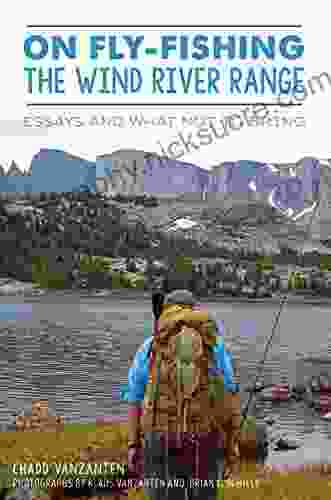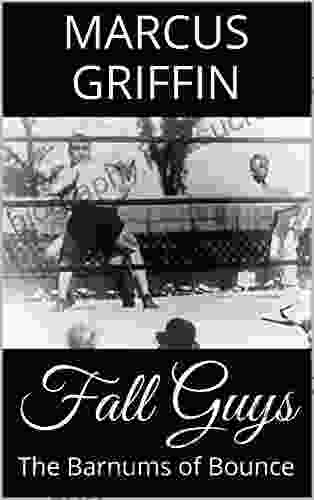Essays and What Not to Bring: A Comprehensive Guide to Literary Analysis

Essays play a pivotal role in academic and literary discourse, serving as vehicles for critical thinking, analysis, and self-expression. They demand a thorough understanding of their structure, types, and essential elements. This article aims to provide a comprehensive guide to essay writing, highlighting the fundamental aspects that contribute to successful literary analysis.
Structure of an Essay
An essay typically comprises the following structure:
4 out of 5
| Language | : | English |
| File size | : | 4380 KB |
| Text-to-Speech | : | Enabled |
| Screen Reader | : | Supported |
| Enhanced typesetting | : | Enabled |
| Word Wise | : | Enabled |
| Print length | : | 163 pages |
- : Captures the reader's attention with a compelling hook, introduces the topic, and presents the thesis statement, which outlines the central argument or claim of the essay.
- Body Paragraphs: Develop the thesis statement by providing evidence, analysis, and discussion. Each body paragraph should focus on a specific aspect or subtopic related to the thesis.
- Transition Sentences: Guide the reader smoothly between paragraphs, connecting ideas and ensuring logical flow.
- : Summarizes the main points of the essay, restates the thesis statement, and provides a closing statement that leaves a lasting impression on the reader.
Types of Essays
Essays can be classified into various types based on their purpose and structure:
- Analytical Essays: Examine and interpret a specific text, analyzing its themes, characters, literary devices, and historical context.
- Argumentative Essays: Present a clear argument on a debatable topic, supporting it with concrete evidence and logical reasoning.
- Comparative Essays: Compare and contrast two or more literary works, exploring their similarities and differences.
- Expository Essays: Explain and inform about a particular topic, presenting facts, research, and analysis.
Key Elements of an Essay
Effective essays possess several key elements that contribute to their credibility and impact:
- Thesis Statement: A clear and concise statement that encapsulates the main argument or purpose of the essay.
- Evidence: Provides support for the thesis statement, drawn from reliable sources such as literary texts, research, and scholarly articles.
- Analysis: Interprets and examines the evidence, highlighting its significance and relevance to the thesis.
- Clarity and Conciseness: Presents ideas and information in a logical, well-organized, and grammatically sound manner.
- Structure: Maintains a clear and coherent structure throughout the essay, ensuring smooth transitions and logical connections.
What Not to Bring into an Essay
While essays offer tremendous scope for exploration and expression, it is equally important to avoid certain pitfalls that can compromise their quality:
- Plagiarism: Avoid using the work of others without proper citation and attribution. Plagiarism is a serious academic offense and damages the credibility of the essay.
- Unreliable Sources: Ensure the credibility of the sources used to support the thesis statement. Avoid relying on biased, outdated, or questionable information.
- Lack of Focus: Maintain a clear and consistent focus throughout the essay. Avoid rambling or introducing irrelevant information that deviates from the main argument.
- Grammatical Errors: Proofread the essay carefully for any grammatical, spelling, or punctuation errors. These errors can distract the reader and undermine the authority of the essay.
- Personal Opinions without Support: While essays may include personal insights, they should be supported by evidence and analysis. Avoid relying solely on unsupported opinions.
Mastering the art of essay writing requires a deep understanding of its structure, types, key elements, and potential pitfalls. By adhering to the principles discussed in this guide, students and writers can produce essays that exhibit clarity, conciseness, and insightful analysis, effectively conveying their ideas and arguments to the intended audience.
4 out of 5
| Language | : | English |
| File size | : | 4380 KB |
| Text-to-Speech | : | Enabled |
| Screen Reader | : | Supported |
| Enhanced typesetting | : | Enabled |
| Word Wise | : | Enabled |
| Print length | : | 163 pages |
Do you want to contribute by writing guest posts on this blog?
Please contact us and send us a resume of previous articles that you have written.
 Fiction
Fiction Non Fiction
Non Fiction Romance
Romance Mystery
Mystery Thriller
Thriller SciFi
SciFi Fantasy
Fantasy Horror
Horror Biography
Biography Selfhelp
Selfhelp Business
Business History
History Classics
Classics Poetry
Poetry Childrens
Childrens Young Adult
Young Adult Educational
Educational Cooking
Cooking Travel
Travel Lifestyle
Lifestyle Spirituality
Spirituality Health
Health Fitness
Fitness Technology
Technology Science
Science Arts
Arts Crafts
Crafts DIY
DIY Gardening
Gardening Petcare
Petcare Kara Tippetts
Kara Tippetts Graham R Gibbs
Graham R Gibbs Stephanie Fritz
Stephanie Fritz Chris Bennett
Chris Bennett Otto Scharmer
Otto Scharmer Thomas Bulfinch
Thomas Bulfinch P J Agness
P J Agness David Jamieson Bolder
David Jamieson Bolder Yang Kuang
Yang Kuang Ascencia
Ascencia Barry Rabkin
Barry Rabkin Robert Hogan
Robert Hogan Daniel P Huerta
Daniel P Huerta Burt L Standish
Burt L Standish Melissa Haag
Melissa Haag Barry J Kemp
Barry J Kemp Sam Nadler
Sam Nadler Scott Mactavish
Scott Mactavish Nicholas Wolterstorff
Nicholas Wolterstorff Jennifer Traig
Jennifer Traig Dustin Hansen
Dustin Hansen F William Lawvere
F William Lawvere Nichole Carpenter
Nichole Carpenter Casey Watson
Casey Watson John D Barrow
John D Barrow Ken Xiao
Ken Xiao Dr Michael P Masters
Dr Michael P Masters Geoffrey Finch
Geoffrey Finch W Hamilton Gibson
W Hamilton Gibson Joseph Epes Brown
Joseph Epes Brown S E Hinton
S E Hinton Sam Harris
Sam Harris Jane Hardwicke Collings
Jane Hardwicke Collings Jack Newman
Jack Newman Isabel Fonseca
Isabel Fonseca Rachel Morgan
Rachel Morgan John Kimantas
John Kimantas Harvey Wittenberg
Harvey Wittenberg Jay Abramson
Jay Abramson Paul Van Lierop
Paul Van Lierop Eddie Merrins
Eddie Merrins Robin Knox Johnston
Robin Knox Johnston Helen Kara
Helen Kara Janis Keyser
Janis Keyser Hongyu Guo
Hongyu Guo Tom Miller
Tom Miller Mike High
Mike High Tim Marshall
Tim Marshall Barbara Kennard
Barbara Kennard Donald Frias
Donald Frias Janna Levin
Janna Levin Allan V Horwitz
Allan V Horwitz James Duggan
James Duggan Jade Barrett
Jade Barrett David Cockburn
David Cockburn Chris Cage
Chris Cage Helen Fisher
Helen Fisher Jayanti Tambe
Jayanti Tambe Rick Joyner
Rick Joyner Jenn Mcallister
Jenn Mcallister Rob Pope
Rob Pope Nick Neely
Nick Neely Paul Doiron
Paul Doiron T C Edge
T C Edge Thomas French
Thomas French Jeff Alt
Jeff Alt David Abram
David Abram Lock Gareth
Lock Gareth David Taylor
David Taylor Thomas Lumley
Thomas Lumley Mykel Hawke
Mykel Hawke Blair Braverman
Blair Braverman Grey Owl
Grey Owl Ernie Morton
Ernie Morton Scott Reed
Scott Reed Maha Alkurdi
Maha Alkurdi Richard Harris
Richard Harris Baruch Englard
Baruch Englard Emma Walker
Emma Walker Mike Commito
Mike Commito Dacher Keltner
Dacher Keltner Jean Smith
Jean Smith Prince Asare
Prince Asare Rob Hutchings
Rob Hutchings Barbara Ann Kipfer
Barbara Ann Kipfer Anthony Edwards
Anthony Edwards Dave Karczynski
Dave Karczynski Steven Hawthorne
Steven Hawthorne Jack Andraka
Jack Andraka Leia Stone
Leia Stone Shmuel Peerless
Shmuel Peerless Jill Brown
Jill Brown Richard H Immerman
Richard H Immerman Jake Anderson
Jake Anderson Victor Seow
Victor Seow Barbara Taylor
Barbara Taylor Dr Faith G Harper
Dr Faith G Harper Cynthia Levinson
Cynthia Levinson Clayton King
Clayton King Jennifer Pharr Davis
Jennifer Pharr Davis David Thomas
David Thomas Becca Anderson
Becca Anderson J C Cervantes
J C Cervantes Jesse Liberty
Jesse Liberty Rebecca Rupp
Rebecca Rupp Lynn Mann
Lynn Mann Temple West
Temple West Yuval Noah Harari
Yuval Noah Harari Jude Currivan
Jude Currivan Hill Gates
Hill Gates Barry Burd
Barry Burd Sam Kean
Sam Kean Michael Wood
Michael Wood Charles Soule
Charles Soule Nadine Hays Pisani
Nadine Hays Pisani John H Mcwhorter
John H Mcwhorter Gary Lincoff
Gary Lincoff Babu The Panda
Babu The Panda Ron Lemaster
Ron Lemaster Alastair Hannay
Alastair Hannay John C Norcross
John C Norcross Valerie Pollmann R
Valerie Pollmann R Barbara Bassot
Barbara Bassot Bashir Hosseini Jafari
Bashir Hosseini Jafari Sampson Davis
Sampson Davis Gordon Witteveen
Gordon Witteveen Dan Golding
Dan Golding Jane Butel
Jane Butel John Sandford
John Sandford Nancy E Willard
Nancy E Willard Barry Glassner
Barry Glassner Pearson Education
Pearson Education Clifford Herriot
Clifford Herriot Peter Wacht
Peter Wacht J Bruce Brackenridge
J Bruce Brackenridge Brandon Royal
Brandon Royal Jenny Chandler
Jenny Chandler Bernard Marr
Bernard Marr Christopher L Heuertz
Christopher L Heuertz Ben Goldacre
Ben Goldacre Beebe Bahrami
Beebe Bahrami Chuck Missler
Chuck Missler Lynn Rosen
Lynn Rosen Constanze Niedermaier
Constanze Niedermaier Jim Fay
Jim Fay Scott Malthouse
Scott Malthouse St Louis Post Dispatch
St Louis Post Dispatch Bb
Bb Emily Chappell
Emily Chappell Craig Romano
Craig Romano Ryan Higa
Ryan Higa Rachel Dash
Rachel Dash Cheryl Erwin
Cheryl Erwin Mary A Fristad
Mary A Fristad Marco Grandis
Marco Grandis Diane Yancey
Diane Yancey Sport Hour
Sport Hour Vanessa Garbin
Vanessa Garbin James Syhabout
James Syhabout Susan Dennard
Susan Dennard Rowan Jacobsen
Rowan Jacobsen Fabien Clavel
Fabien Clavel Stephen J Bavolek
Stephen J Bavolek Laura Pavlov
Laura Pavlov Breanna Hayse
Breanna Hayse Macauley Lord
Macauley Lord Steven Rinella
Steven Rinella John Whitman
John Whitman Visual Arts
Visual Arts Peter K Tyson
Peter K Tyson Bill Milliken
Bill Milliken James Kilgo
James Kilgo Dustin Salomon
Dustin Salomon Mike Massie
Mike Massie Julian I Graubart
Julian I Graubart William Byers
William Byers Suzanne Leonhard
Suzanne Leonhard Kit Yates
Kit Yates Sean Mcindoe
Sean Mcindoe Scarlett Thomas
Scarlett Thomas Joshua G Shifrin
Joshua G Shifrin Mike Swedenberg
Mike Swedenberg Julie Buxbaum
Julie Buxbaum Michelle Rigler
Michelle Rigler Graham Farmelo
Graham Farmelo Geert Hofstede
Geert Hofstede Mark Young
Mark Young Bill Mckibben
Bill Mckibben George Macdonald
George Macdonald Vincent Bossley
Vincent Bossley Cindy Post Senning
Cindy Post Senning S K Gupta
S K Gupta Leonard M Adkins
Leonard M Adkins Daniel T Willingham
Daniel T Willingham Vanessa Ogden Moss
Vanessa Ogden Moss John G Robertson
John G Robertson Muhammad Zulqarnain
Muhammad Zulqarnain Mike Loades
Mike Loades Barbara Neiman
Barbara Neiman Nina Manning
Nina Manning William Wasserman
William Wasserman Tim Ingold
Tim Ingold Jeffrey Jensen Arnett
Jeffrey Jensen Arnett Fred Mitchell
Fred Mitchell Beau Miles
Beau Miles Yuki Mano
Yuki Mano James C Radcliffe
James C Radcliffe Ian Leslie
Ian Leslie Noah Brown
Noah Brown John Aldridge
John Aldridge Proper Education Group
Proper Education Group Chris Mooney
Chris Mooney Melissa Gomes
Melissa Gomes Frederick Douglass Opie
Frederick Douglass Opie Reelav Patel
Reelav Patel Print Replica Kindle Edition
Print Replica Kindle Edition Benita Bensch
Benita Bensch Mackenzi Lee
Mackenzi Lee Kathleen Masters
Kathleen Masters Meghan L Marsac
Meghan L Marsac R L Medina
R L Medina Elizabeth Lockwood
Elizabeth Lockwood Edith Grossman
Edith Grossman Steve Biddulph
Steve Biddulph Reprint Edition Kindle Edition
Reprint Edition Kindle Edition Bryan Peterson
Bryan Peterson Trish Kuffner
Trish Kuffner Lily Collins
Lily Collins Elizabeth George Speare
Elizabeth George Speare Boy Scouts Of America
Boy Scouts Of America Nick Bollettieri
Nick Bollettieri Martin Sternstein
Martin Sternstein Cara Koscinski
Cara Koscinski James M Collins
James M Collins Brian Switek
Brian Switek Mick Conefrey
Mick Conefrey Edward Lee
Edward Lee Sergei Urban
Sergei Urban John J Robinson
John J Robinson Emma Brockes
Emma Brockes Ronald Wheeler
Ronald Wheeler Diane Musho Hamilton
Diane Musho Hamilton Rachelle Zukerman
Rachelle Zukerman Cary J Griffith
Cary J Griffith Kyle Butler
Kyle Butler Khurshed Batliwala
Khurshed Batliwala Chase Hill
Chase Hill Achille Rubini
Achille Rubini Catherine J Allen
Catherine J Allen Bagele Chilisa
Bagele Chilisa Mike Stanton
Mike Stanton Dave Rearwin
Dave Rearwin Catherine M Cameron
Catherine M Cameron Dr Craig Malkin
Dr Craig Malkin Gay Robins
Gay Robins Richard Weissbourd
Richard Weissbourd John Lister Kaye
John Lister Kaye Wanda Priday
Wanda Priday Randy Baker
Randy Baker Smart Reads
Smart Reads Christopher Taylor Ma Lmft
Christopher Taylor Ma Lmft Beth Miller
Beth Miller David Aretha
David Aretha Elliott Vandruff
Elliott Vandruff Carlo Collodi
Carlo Collodi Brad Burns
Brad Burns Ray Comfort
Ray Comfort Christine Kenneally
Christine Kenneally Luke Gilkerson
Luke Gilkerson Denton Salle
Denton Salle Lew Freedman
Lew Freedman Richard J Dewhurst
Richard J Dewhurst Holger Schutkowski
Holger Schutkowski Jaymin Eve
Jaymin Eve Mark Ellyatt
Mark Ellyatt Donald R Gallo
Donald R Gallo Mia Scotland
Mia Scotland Roanne Van Voorst
Roanne Van Voorst Linda Carroll
Linda Carroll Jean Illsley Clarke
Jean Illsley Clarke Howard Zinn
Howard Zinn David A Bogart
David A Bogart Barbara Russell
Barbara Russell Crystal Duffy
Crystal Duffy Kindle Edition
Kindle Edition Peter Martin
Peter Martin James Randi
James Randi David Beaupre
David Beaupre Jeremy Sweet
Jeremy Sweet W Scott Elliot
W Scott Elliot Diane Cardwell
Diane Cardwell Rob Rains
Rob Rains Arny Alberts
Arny Alberts Charlie Shamp
Charlie Shamp Edwin R Sherman
Edwin R Sherman Jessica F Shumway
Jessica F Shumway Craig Martin
Craig Martin Ellen Notbohm
Ellen Notbohm Richard Meadows
Richard Meadows Julie L Spencer
Julie L Spencer Gerald Beaudry
Gerald Beaudry Buddy Levy
Buddy Levy Bonnie Tsui
Bonnie Tsui Joanne Glenn
Joanne Glenn Leah Cullis
Leah Cullis Deanna Roy
Deanna Roy Charles Buist
Charles Buist Erik J Brown
Erik J Brown Ping Li
Ping Li Scott Westerfeld
Scott Westerfeld Colleen Alexander Roberts
Colleen Alexander Roberts David Burch
David Burch Nicole Martin
Nicole Martin Barry Friedman
Barry Friedman Barbara Gastel
Barbara Gastel Richard Chun
Richard Chun Jonathan Kellerman
Jonathan Kellerman Mike Allison
Mike Allison Rachel Smith
Rachel Smith Mark Rashid
Mark Rashid Basu Shanker
Basu Shanker Marc Loy
Marc Loy Editors Of Southern Living Magazine
Editors Of Southern Living Magazine Stefan Ecks
Stefan Ecks Martin Dugard
Martin Dugard Molly E Lee
Molly E Lee Erica Schultz
Erica Schultz J Michael Veron
J Michael Veron Ron Avery
Ron Avery David Starbuck Smith
David Starbuck Smith Beau Bradbury
Beau Bradbury Mark Twain
Mark Twain Nick Townsend
Nick Townsend Barbara Mertz
Barbara Mertz Richard Scott
Richard Scott Bob Holtzman
Bob Holtzman David Klausmeyer
David Klausmeyer Stanislas Dehaene
Stanislas Dehaene Monta Z Briant
Monta Z Briant Gordon H Chang
Gordon H Chang Toby A H Wilkinson
Toby A H Wilkinson Roy Porter
Roy Porter Jim Wharton
Jim Wharton Pavla Kesslerova
Pavla Kesslerova Joseph Schmuller
Joseph Schmuller Jenna Helland
Jenna Helland Eliza Reid
Eliza Reid Hollis Lance Liebman
Hollis Lance Liebman Charlotte Booth
Charlotte Booth Kam Knight
Kam Knight James Koeper
James Koeper Bruce Pascoe
Bruce Pascoe Joshua Hammer
Joshua Hammer Percy Boomer
Percy Boomer Malcolm Hebron
Malcolm Hebron Siddhartha Rao
Siddhartha Rao Jen Houcek
Jen Houcek T H White
T H White Eric Engle
Eric Engle James Duthie
James Duthie Barry Rhodes
Barry Rhodes Gary Soto
Gary Soto Hunbatz Men
Hunbatz Men Mark H Newman
Mark H Newman Eugene V Resnick
Eugene V Resnick Stephen K Sanderson
Stephen K Sanderson Dan R Lynch
Dan R Lynch Mark Kurlansky
Mark Kurlansky Barzin Pakandam
Barzin Pakandam Ben Sedley
Ben Sedley John Quick
John Quick Mitch Prinstein
Mitch Prinstein Kate Darling
Kate Darling Farzana Nayani
Farzana Nayani Ben Povlow
Ben Povlow Marie Rutkoski
Marie Rutkoski Steven Bell
Steven Bell Autumn Carpenter
Autumn Carpenter Max Marchi
Max Marchi Ryan T White
Ryan T White Pat Shipman
Pat Shipman Catherine Shainberg
Catherine Shainberg Conor Nolan
Conor Nolan Craig Lambert
Craig Lambert Susan Scott
Susan Scott Wayne B Chandler
Wayne B Chandler Matt Taddy
Matt Taddy Nicholas Sparks
Nicholas Sparks Ryan A Pedigo
Ryan A Pedigo Mark Mayfield
Mark Mayfield Kara Goucher
Kara Goucher Master Gamer
Master Gamer Patrick Sweeney
Patrick Sweeney Leslie Stager
Leslie Stager Jutta Schickore
Jutta Schickore Brian Gilbert
Brian Gilbert Rhonda Belle
Rhonda Belle Spencer Wells
Spencer Wells Debbie M Schell
Debbie M Schell John Henry Phillips
John Henry Phillips Barbara Illowsk
Barbara Illowsk Stan Tekiela
Stan Tekiela Erica B Marcus
Erica B Marcus John Garrity
John Garrity Kenton Kroker
Kenton Kroker Eric Leiser
Eric Leiser Robert A Baruch Bush
Robert A Baruch Bush Bobbie Faulkner
Bobbie Faulkner Daniel M Koretz
Daniel M Koretz Tori Day
Tori Day Samantha Fitts
Samantha Fitts Robin Nixon
Robin Nixon Kenneth Wilgus Phd
Kenneth Wilgus Phd Monica Hesse
Monica Hesse Robin Mcmillan
Robin Mcmillan Kate Williams
Kate Williams Joanna Hunt
Joanna Hunt C R Hallpike
C R Hallpike Linnea Dunne
Linnea Dunne Jeff Belanger
Jeff Belanger Jonathan Bergmann
Jonathan Bergmann Marshall Jon Fisher
Marshall Jon Fisher Margaret Owen
Margaret Owen Chiara Sparks
Chiara Sparks Gabriyell Sarom
Gabriyell Sarom Guy P Harrison
Guy P Harrison Lawrence Baldassaro
Lawrence Baldassaro Danny Staple
Danny Staple Charlotte Browne
Charlotte Browne V B Alekseev
V B Alekseev Jamie Margolin
Jamie Margolin Chadd Vanzanten
Chadd Vanzanten William H Frey
William H Frey Joseph Alton M D
Joseph Alton M D Barbara Rogoff
Barbara Rogoff Massimo Cossu Nicola Pirina
Massimo Cossu Nicola Pirina Charles River Editors
Charles River Editors Debra Kilby
Debra Kilby Lewis Thomas
Lewis Thomas Ralph Galeano
Ralph Galeano Chris Eberhart
Chris Eberhart Glenna Mageau
Glenna Mageau Arnold G Nelson
Arnold G Nelson Eric Franklin
Eric Franklin Oliver T Spedding
Oliver T Spedding Suzanne Wylde
Suzanne Wylde Sara Shepard
Sara Shepard Shayla Black
Shayla Black Laura Ingalls Wilder
Laura Ingalls Wilder Titus M Kennedy
Titus M Kennedy Mina Lebitz
Mina Lebitz Robert Ardrey
Robert Ardrey Ellen Lewin
Ellen Lewin Sam Cowen
Sam Cowen Candice Davie
Candice Davie Tara Brach
Tara Brach Philip Maffetone
Philip Maffetone Alexandra Andrews
Alexandra Andrews Farley Mowat
Farley Mowat Linda Welters
Linda Welters Tami Anastasia
Tami Anastasia Barry Johnston
Barry Johnston Basudeb Bhatta
Basudeb Bhatta Sharon Dukett
Sharon Dukett Daniel J Barrett
Daniel J Barrett Ben Collins
Ben Collins Daniel S Lobel Phd
Daniel S Lobel Phd Rebecca Solnit
Rebecca Solnit Larry Dane Brimner
Larry Dane Brimner Susan Nance
Susan Nance Karen Bush
Karen Bush Jessica Smartt
Jessica Smartt Jennifer Estep
Jennifer Estep Betty Stone
Betty Stone Shannon Reilly
Shannon Reilly Steve Burrows
Steve Burrows Timothy Pakron
Timothy Pakron Leon Mccarron
Leon Mccarron Michael Palin
Michael Palin Bridget Flynn Walker Phd
Bridget Flynn Walker Phd Simon Spurrier
Simon Spurrier Cait Stevenson
Cait Stevenson Violet Moller
Violet Moller Justin Sirois
Justin Sirois
Light bulbAdvertise smarter! Our strategic ad space ensures maximum exposure. Reserve your spot today!
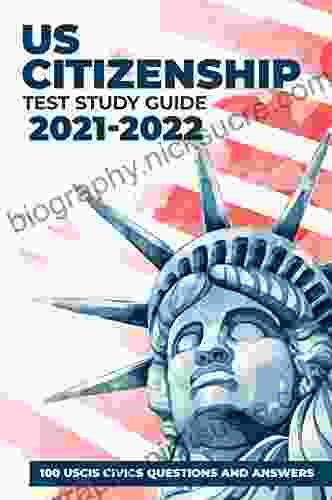
 Ken Simmons100 Essential USCIS Civics Questions and Answers with Detailed Explanations...
Ken Simmons100 Essential USCIS Civics Questions and Answers with Detailed Explanations...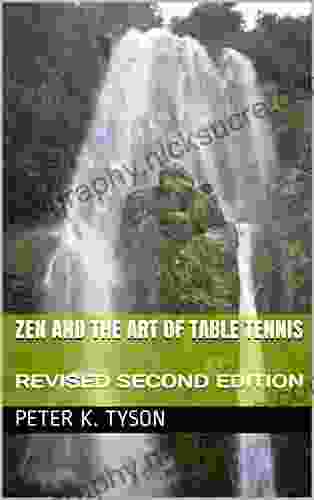
 Harrison BlairZen and the Art of Table Tennis: A Philosopher's Guide to Playing the Game of...
Harrison BlairZen and the Art of Table Tennis: A Philosopher's Guide to Playing the Game of...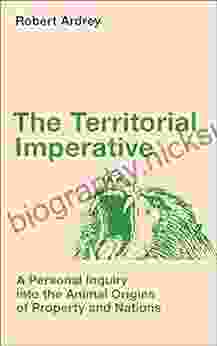
 Dwight BlairPersonal Inquiry Into the Animal Origins of Property and Nations by Robert...
Dwight BlairPersonal Inquiry Into the Animal Origins of Property and Nations by Robert...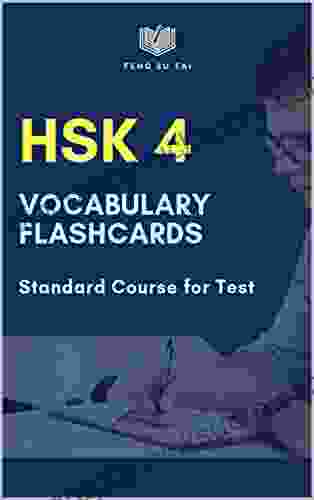
 Ernest J. GainesHSK Vocabulary Flashcards: A Comprehensive Guide to the Standard Course for...
Ernest J. GainesHSK Vocabulary Flashcards: A Comprehensive Guide to the Standard Course for... Ignacio HayesFollow ·9.5k
Ignacio HayesFollow ·9.5k Hugh BellFollow ·9.6k
Hugh BellFollow ·9.6k Harrison BlairFollow ·8.5k
Harrison BlairFollow ·8.5k Isaiah PowellFollow ·11.9k
Isaiah PowellFollow ·11.9k Ian MitchellFollow ·18.7k
Ian MitchellFollow ·18.7k Ricky BellFollow ·16.6k
Ricky BellFollow ·16.6k Kendall WardFollow ·15k
Kendall WardFollow ·15k Joseph ConradFollow ·11.2k
Joseph ConradFollow ·11.2k
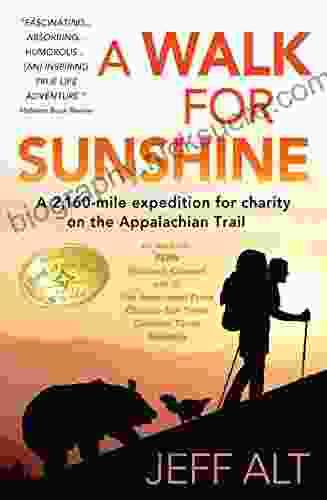
 Israel Bell
Israel BellEmbark on an Epic 160-Mile Expedition for Charity on the...
Prepare yourself for an...
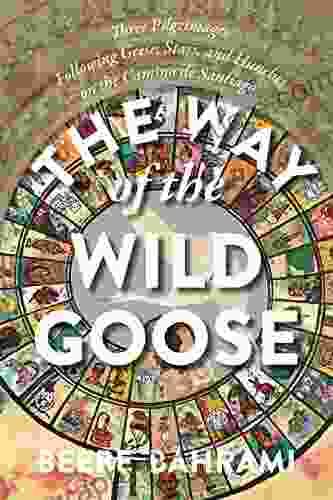
 Josh Carter
Josh CarterThe Way of the Wild Goose: A Journey of Embodied Wisdom...
The Way of the Wild Goose is an ancient...

 Allen Parker
Allen ParkerMastering the Art of Bean Fly Casting: A Comprehensive...
Fly fishing,...
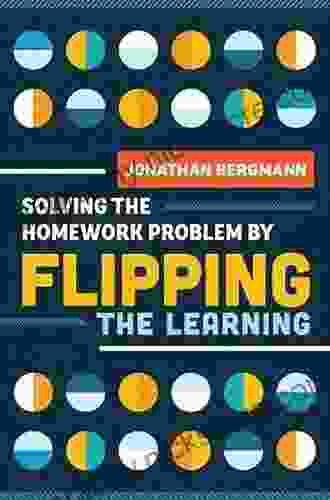
 Aaron Brooks
Aaron BrooksSolving the Homework Problem by Flipping the Learning
What is flipped...

 Fletcher Mitchell
Fletcher MitchellThe Jane Butel Library: A Renewed Source of Knowledge and...
The Jane Butel...
4 out of 5
| Language | : | English |
| File size | : | 4380 KB |
| Text-to-Speech | : | Enabled |
| Screen Reader | : | Supported |
| Enhanced typesetting | : | Enabled |
| Word Wise | : | Enabled |
| Print length | : | 163 pages |


